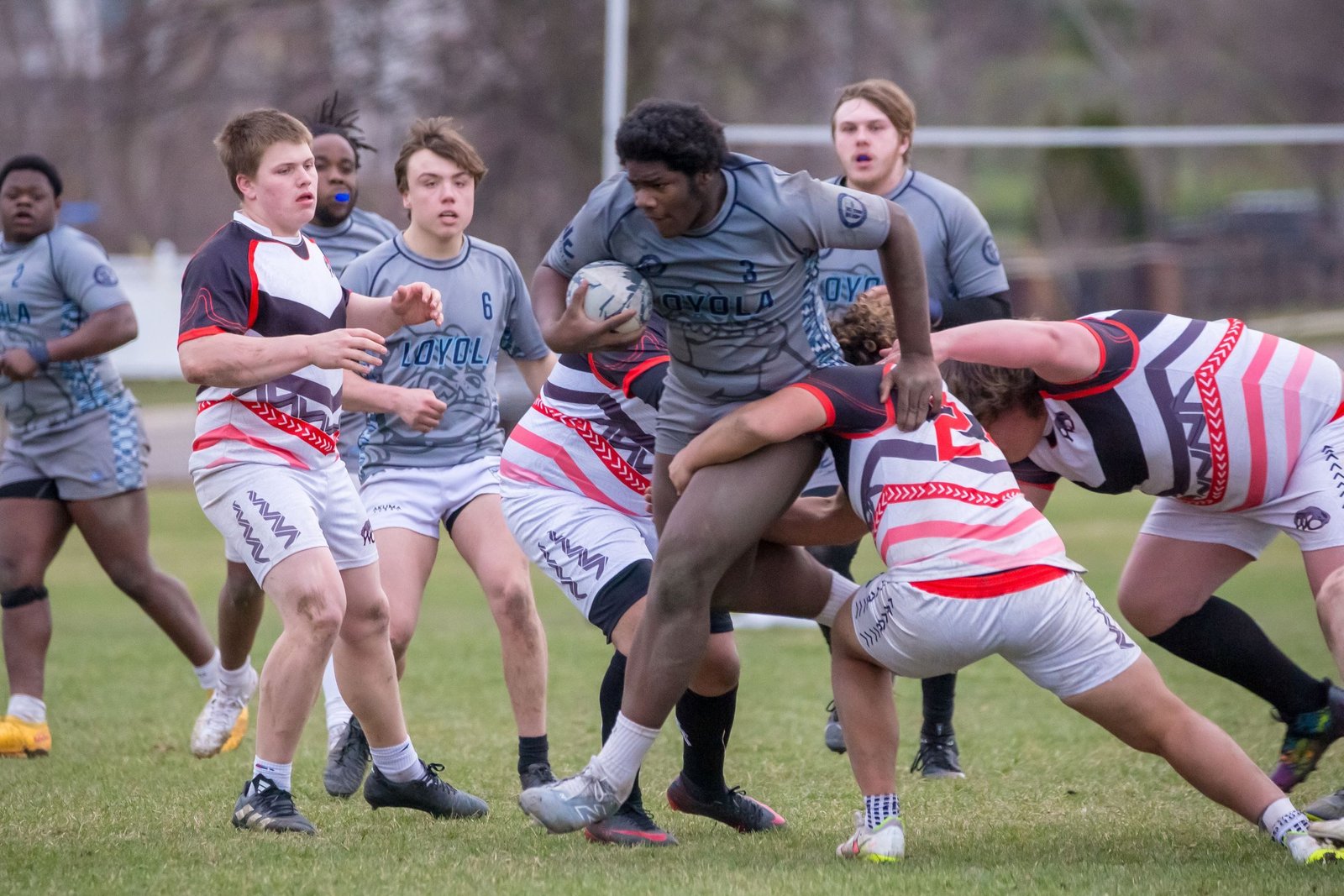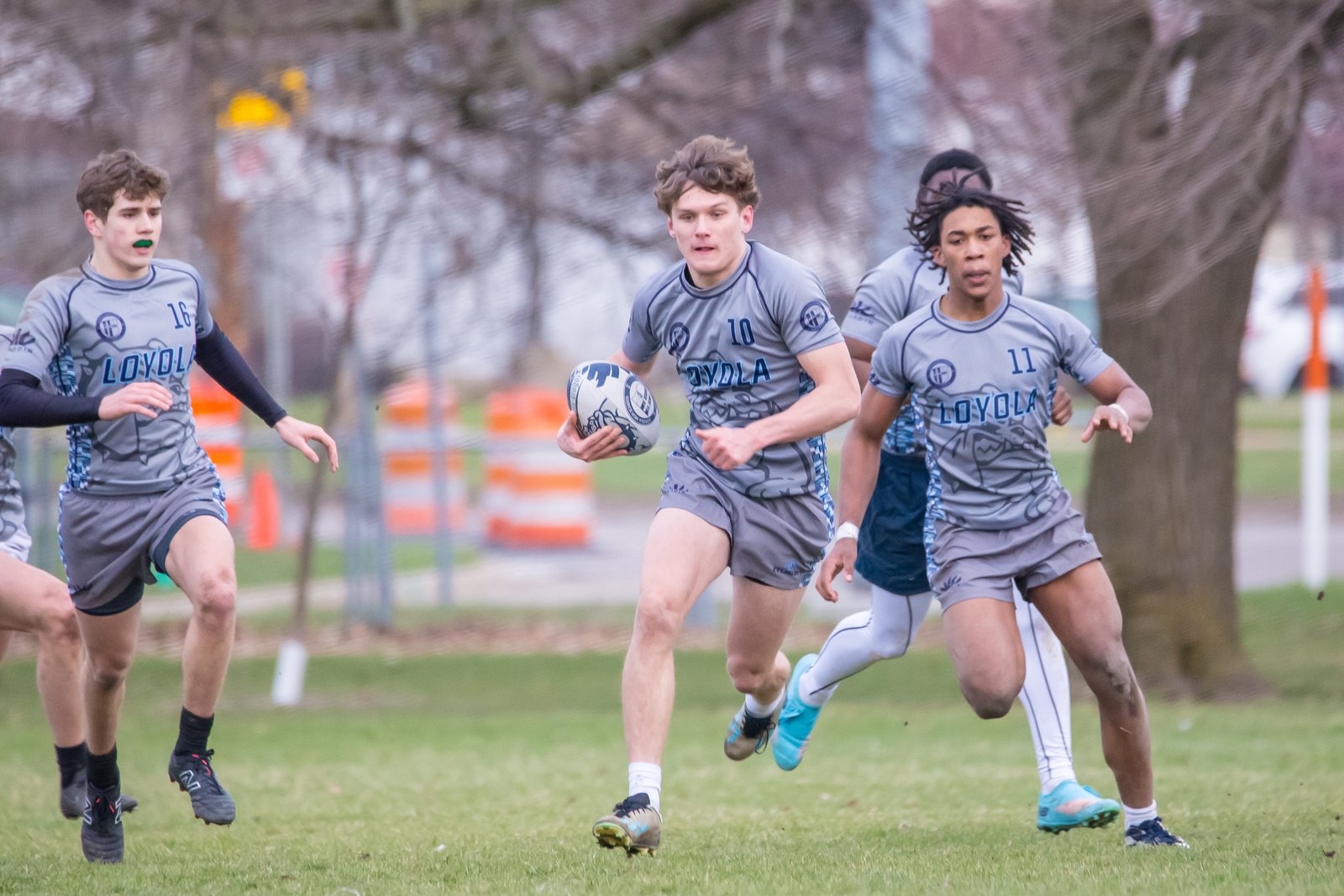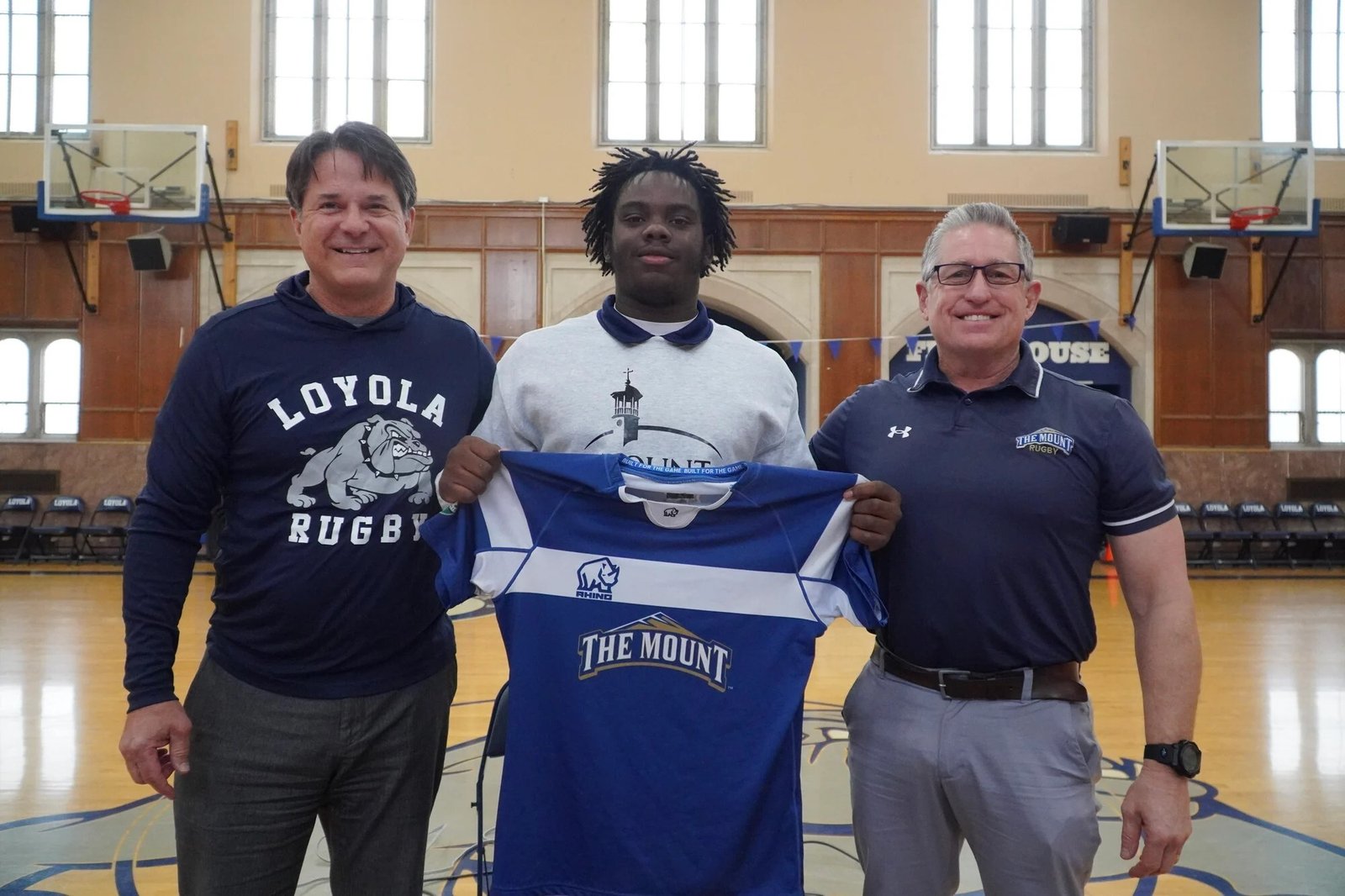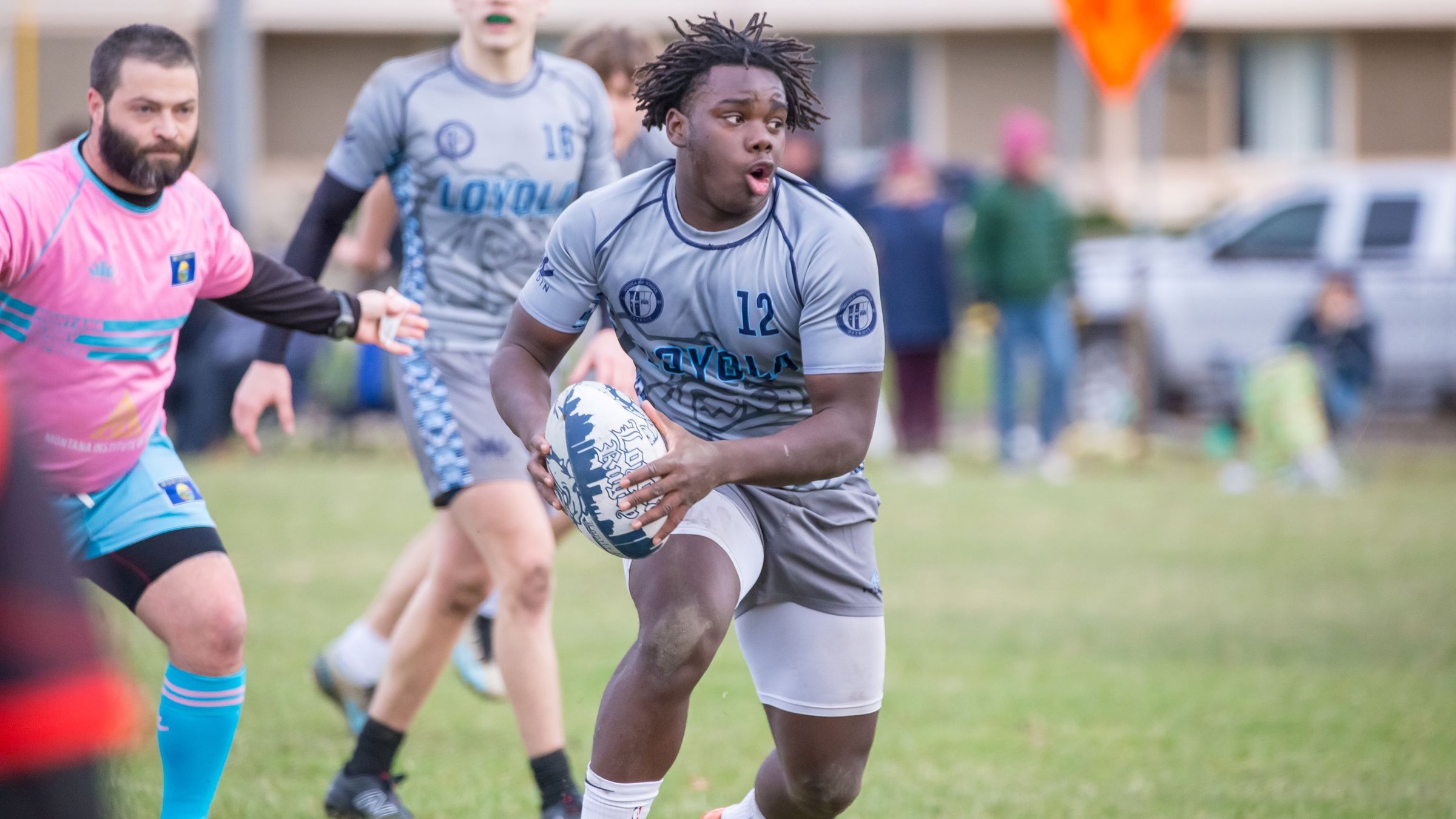SOUTHFIELD — Raylon Murry had played football from a young age, but once he discovered rugby, a whole new world opened for him.
Literally. Murry is spending this weekend playing in the Tropic 7s travel tournament in Tampa. Two weeks ago, he played in London. Murry’s been on pitches everywhere from South Africa to New Zealand to Dubai. And he’s accepted a college scholarship to continue his rugby career at Mount St. Mary’s University in Maryland.
“I would describe rugby as a game made for vicious people, but played by gentlemen,” he said. “One of my favorite parts is when you sit down and talk with your opponents and chill with them after the match. In football, after the game the teams don’t really want to shake hands.”
Murry, a senior at Loyola High School in Detroit, discovered the game as an eighth grader by tagging along to watch his older brother, Rahmon, play on the Bulldogs' club.

“It was the COVID year, and there was nothing else going on, so I started practicing with them, the whole year, even though I couldn’t play,” he said. “I went to all the practices and I picked it up.”
Soon, Murry showed enough skill on the pitch that he became one of Loyola’s featured players, and expanded his game through the travel opportunities.
“One of the benefits of this is the joy of seeing kids really embrace this sport, and really connecting with each other,” said Murry’s coach, Ron Cornell. “Otherwise, I don’t think they would communicate and have respect and compassion they show for their teammates. I’m 60 years old and I have done this for 28 years. It’s kept me alive and young and excited to see new kids develop every season.”
Cornell, who’s also chairman of the board of Rugby Michigan, said there are only about 20 prep programs spread across the state, yet the game expands at the collegiate level, where nearly every in-state school has a club.
“We have outstanding athletes at Loyola, several have scholarships to play sports in college,” he said. “It’s the traction that the kids provide; they can play really exceptional rugby, and kids want to play for us. The kids are really committed to playing. They have competed for positions at clubs across the country.”
The Loyola rugby program is unique on several levels. First of all, most of the other scholastic clubs are from suburban public high schools that enroll several thousand students, far above the 126 students who attend Loyola, in Detroit’s inner city. Still, because of its success in recent seasons (such as a 6-1 record last year), Loyola plays in the upper division, which also consists of Brighton, Forest Hills, Grandville, Holland West Ottawa, and Detroit Catholic Central (the only other Catholic League program).

For a while, a touchstone for the Bulldogs was that they were the state’s only African-American rugby squad. But since the team is classified as a “club,” students from other schools have joined. Several travel in from places like Madison Heights, Northville and Brighton to play with the Bulldogs, who host home matches at Levey Middle School in Southfield.
“Because of the (small) size of the school, we have always invited people from other high schools to play on our club. They have to register with USA Rugby. It’s a club sport, (so) we’re allowed to have kids from outside the school participating,” Cornell said. “They come from all over — they will drive to the inner city to be part of the club, because of the special environment.”
Loyola’s club began eight years ago when Fr. Adam DeLeon, SJ, a former theology teacher at the school, contacted Cornell to help develop a program.
“He had a history — wherever he’s landed, he’s always been interested in starting a rugby team,” Cornell said. “Detroit Catholic Central and Loyola started at the same time 2017 as an outgrowth of a club in Northville which was folding. It’s a unique opportunity for these cultures to mix.”
The sport has ebbed and flowed over the past couple years, but is strong at both Loyola and CC.
“The top rugby programs in the country, such as St. Ignatius and St. Edward’s in Cleveland — besides the Mormons in Utah — it’s all Catholic schools that have embraced rugby,” Cornell said.
Rugby is one of those sports that people have generally heard of, but aren’t quite familiar with the rules and object of the game, Cornell said.

“I think a lot of people compare it to a cross between football without pads, and a continuation like soccer, because the ball is continuously in play,” Cornell said. “There are certain rules for advancing the ball. You cannot pass the ball forward. You can run the ball forward and kick the ball forward and go get under it, but you cannot throw the ball forward.”
Fifteen players take the field for each squad. Teams strive to advance the ball to the try line, which is comparable to football’s end zone, and put the ball on the ground with force, earning five points. An extra point try follows.
“The biggest impediment with football players, who play contact sports, is that play continues,” Cornell said. “It’s not an eight-second play followed by a 45-second break. The play keeps going. Everybody can run with the ball, and score. That’s the big attraction — we have plays designed for everyone, no matter their size or their body type.”
And because Loyola has a talented senior class due to graduate — Patrick Green (Wheeling University in West Virginia) and Don’Yale Sharp (Aquinas) also plan to play in college — attracting new talent is one of the ongoing factors for the club.
“Right now we have a roster of 23, so we have eight subs,” Cornell said. “I’d like to have a few more because we’re looking down the road for development. We’ve got seniors who have played for us for four years. There’s a rugby team at almost every college. If you’re looking for an opportunity to learn a sport, then learn to play rugby — you can find a rugby team in just about every community.”
For Murry, attracting the next generation of Bulldog rugby stars is a bit more organic.
“I want to really pass down the experience to the younger guys. I want the program to be at the same level, or higher, when I leave. We have a lot of seniors who helped bring the program up to what it is today,” he said. “I just show them a couple clips of my playing. When they see me play, they get inspired. When I show them the clips, I tell them if I could do it, you could do it. I want to inspire them to start playing.”
“A great thing about this sport is it can give kids opportunities they wouldn’t ordinarily have,” Cornell said. "It’s unfortunate that kids don’t always recognize that they have skill sets that go beyond football and basketball, but I tell them that rugby might open some doors for them, too.”










